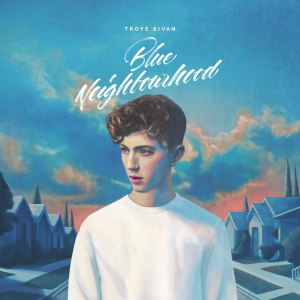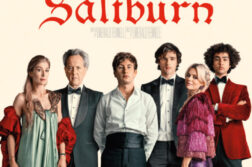 Blue Neighborhood
Blue Neighborhood
Album by Troye Sivan
Capitol Records
TROYE SIVAN is giving you all he’s got. In fact, the actor–singer–songwriter—wunderkind is most apt—even claims to be all yours. In “Youth,” his dance hit that peaked this past summer, he sings, either to a boyfriend or to his growing fan-base: “My youth, my youth is yours/ Trippin’ on skies, sippin’ waterfalls.” The fact that Sivan is openly gay—he came out at nineteen via YouTube—gives the usage of the word “truth” a special power, as in “A truth so loud you can’t ignore.”
Sivan’s fame is something of a Frankenstein’s monster, stitched together from disparate parts, some of them global. Born in 1995 in Johannesburg, South Africa, to Jewish parents, his father relocated him and his three siblings to Australia. After an early start in musical theater, Sivan was cast in 2009’s X-Men action film, X-Men Origins: Wolverine. Actor-turned-video blogger (or “vlogger”), his YouTube videos garnered more than four million subscribers, and his first single, “Happy Little Pill,” sailed to the number ten slot on the Australian pop charts. With the 2015 release of Blue Neighborhood, Sivan appears to be following his musical muse rather than the movies at present, and given his X-Men history and a certain savoir-faire for self-presentation, he may be crafting himself as the LGBT community’s very first action hero.
Complementing the brave candor of his lyrics are the trio of concept videos that Sivan built around the songs “Youth,” “Fools,” and “Talk Me Down” (all of which are available on YouTube). In the video for “Youth,” Sivan is seen passionately entwined with another guy on a bed, but the shot is interspersed with flashbacks of the couple as boys. The narrative arc of the triptych is archetypally biblical: the snake in the garden is a beer-guzzling homophobe (his boyfriend’s father) who threatens their preadolescent paradise and attacks his son after learning of their relationship. Thus the escapist sentiment: “What if, what if we run away. …What if, what if we left today.” Unavoidably, there is a fall, as in the lyric, “Only fools fall for you,” and his boyfriend’s attempt to pose as a straight boy with a girlfriend. A somber stroke of dream pop, “Talk Me Down” is set in a graveyard with Sivan trying to stop his lover from taking his own life. And if you think that’s a downer, listen to the second best song on the album, “Wild.” It topped the Billboard and “Twitter Top Tracks” chart this past June after it was rereleased as a duet with another knockout newcomer, Alessia Cara, the remixes of which are pure fire.

A majority of the songs on Blue Neighborhood are openhearted ballads, wistful and unguarded. “Skinny-dipping, shooting stars with fat cigars. … They stop and stare/ Flashes filling the silence of a Hollywood affair,” he sings in “Cool,” a song in which Sivan veers between envy and desire, remembering “drinks in bars, boys in cars” and “trying to be cool just like you.” Unlike the other titles on Blue Neighborhood, which are spelled in all caps—in the way that Millennials communicate a sense of alarm via text messages—“for him” is comparatively subdued and projects a voice of experience. If the album is lacking for anything, it is its fairly narrow range of instrumentation—trap-beats and drum-machines, which can sound hollow and synthetic. That said, the lyrics from “Youth” are revealing and again evoke his action-hero origins: “Stars exploding/ We’ll be fireproof.” That’s a torch song for the 21st century if I’ve ever heard one.
Colin Carman, PhD, teaches British and American literature at Colorado Mesa University in Grand Junction, Colorado.






